Time:2020-07-10 Reading:19192
Professor Hiroshi Ishiguro of Osaka University, the father of modern robots in Japan, once said, "There are two ways of human evolution, one is genetic evolution, and the other is technological evolution. In his opinion, technological evolution is much faster than genetic evolution."
By technology, he said, he means a future in which robots will replace human torsos and help humans move.
Although we have seen this scene countless times in movies or in our dreams, when artificial intelligence robots really develop to this point, we can't help but sigh, what else can we do in the future?
Recently, researchers from the University of Liverpool have successfully developed an artificial intelligence robot chemist.
The robot chemist has humanoid features and can work by itself in a standard laboratory,using a variety of laboratory instruments just like a human would. Unlike humans, however,the robot has unlimited patience, can consider variables in dozens of dimensions at the same time, and works for 21.5 hours a day, with the rest of the time spent pausing to recharge.
What's more, the robot can think for itself and perform a series of experimental operations autonomously. In the first test, the 1.75-meter-tall AI robot independently completed 668experiments in eight days and developed a new chemical catalyst. The breakthrough was published as a cover article in the latest issue of the journal Nature.
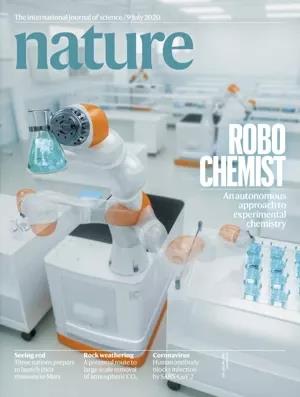
The cover of the latest issue of Nature
Professor Andrew Cooper, professor in the Department of Chemistry and Materials at the University of Liverpool, who led the study, said: "The idea is to streamline research rather than streamline machines. "With the advent of artificial intelligence experimental robots, we can make our work more flexible. It changes the way we work, not just as a machine in the lab,but also as an experimental partner with superpowers, freeing up time for humans to think creatively."
The AI chemist who never gets tired.
According to the researchers, the robot chemist can independently perform all the tasks in a chemical experiment, such as weighing solids, distributing liquids, removing air from a container, running catalytic reactions and quantifying reaction products, and even make its own decisions about what chemical experiments need to be conducted next. All of these experiments are carried out in the lab by the robot itself, operating experimental tools.
Moreover, the robot has a human-like size and reach, so it can use experimental equipment specifically designed for human operation. It combines laser scanning and touch feedback for positioning and can walk freely around the lab to perform a variety of tasks. In a sense, it's like a human researcher, with access to a variety of instruments.
The robot is so powerful because of the powerful artificial intelligence algorithms the researchers designed for it. The robot's brain, which analyzes variables in 10 dimensions based on the results of the previous experiment, can determine the best experiment to perform next,out of more than 100 million candidate chemistry experiments in the lab.
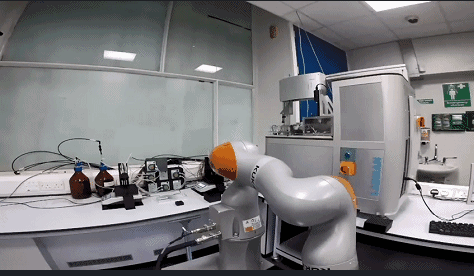
Work tirelessly on experiments
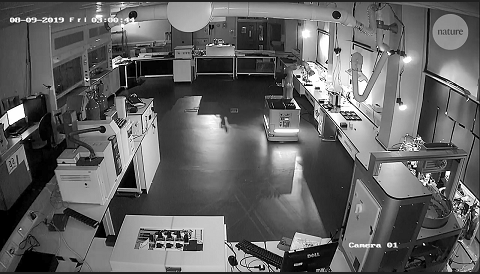
Doing experiments day and night
So in the first test, the robot performed 688 experiments in eight days, worked 192 hours,made 319 moves, completed 6,500 instrument maneuvers, and found a very active catalyst on its own, without any guidance from a researcher.
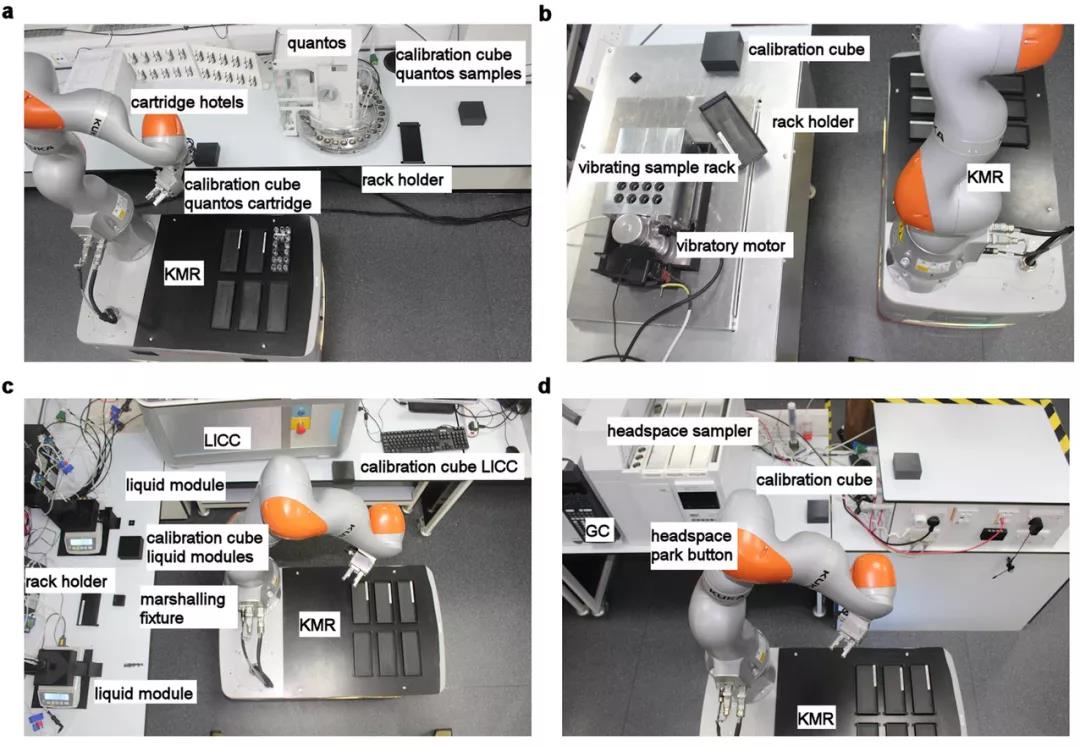
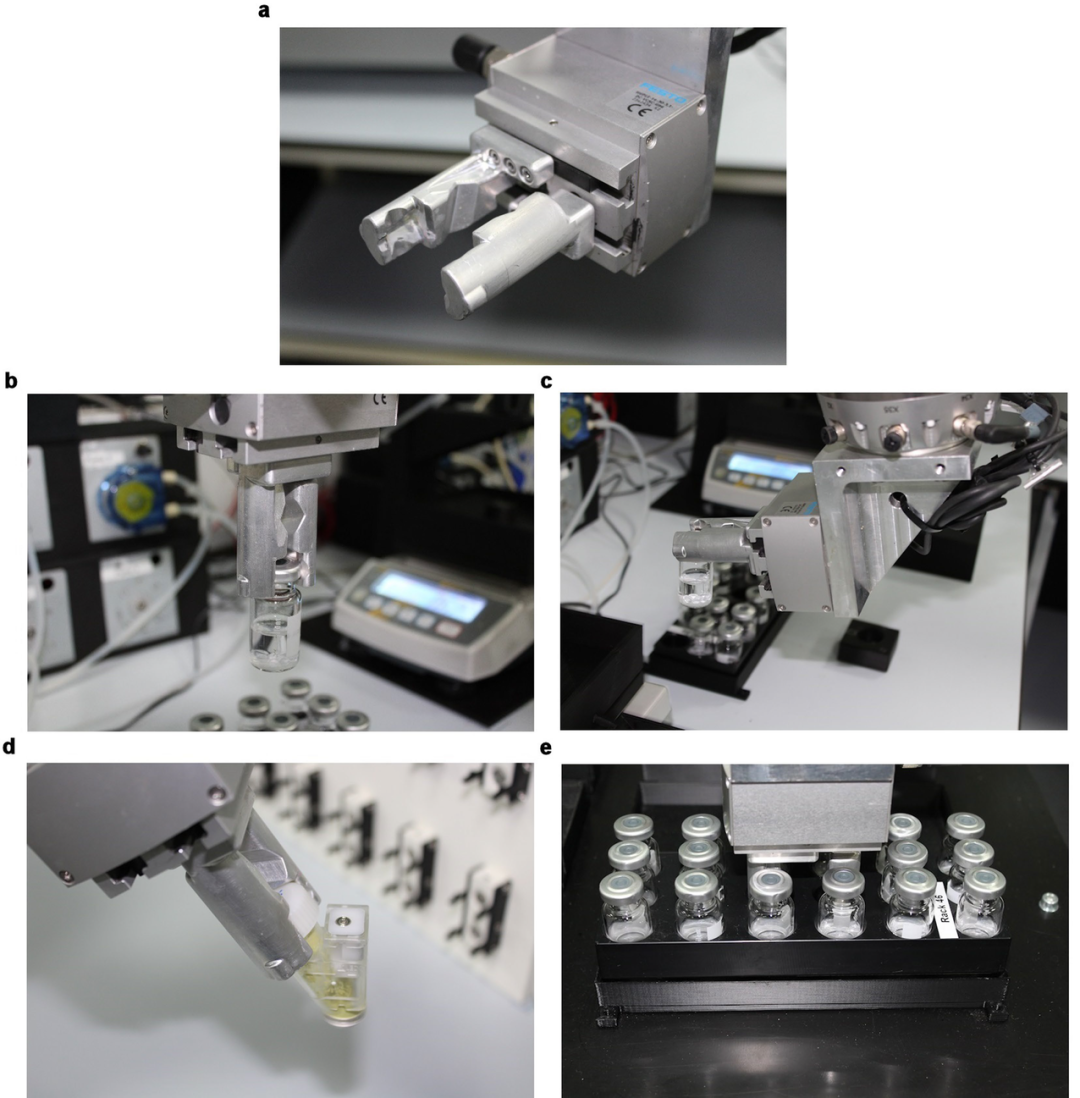
It can do everything, it can do everything, and the key is to have a brain
Dr Benjamin Burger, who worked on the robot algorithm for the study, said: "The biggest challenge when developing a robot is how to make the brain last. "Because the robot needs to work autonomously on many days and perform thousands of delicate operations, the failure rate of the robot in each task must be extremely low. But once a robot completes these experiments, it is bound to make far fewer mistakes than a human."
At the same time, the researchers also say that such robots can solve large-scale and complex experimental problems that are currently beyond our grasp. For example, autonomous robots could search for clean energy materials or new drug formulations by automatically searching vast, untapped chemical Spaces.
Reshaping the future of chemical research and development
In fact, this isn't the first AI-powered chemical robot that humans have created.
In 2018, for example, researchers from the University of Glasgow trained an AI-powered chemical synthesis robot to automate the process of exploring a large number of chemical reactions. The research was also published in the journal Nature. The researchers said at the time that the new technique could revolutionize the way molecules are discovered.
But unlike the autonomous robotic chemists featured on this Nature cover, the robotic system was in part an artificial intelligence reactor.
The team at the University of Glasgow demonstrated its potential by using the robotic system to search for about 1,000 reactions from combinations of 18 different starting chemicals.
The surprising result was that after exploring only about 100 possible chemical reactions, the robotic system was able to predict with more than 80 percent accuracy which combinations of starting chemicals should be searched for to generate new reactions and molecules.
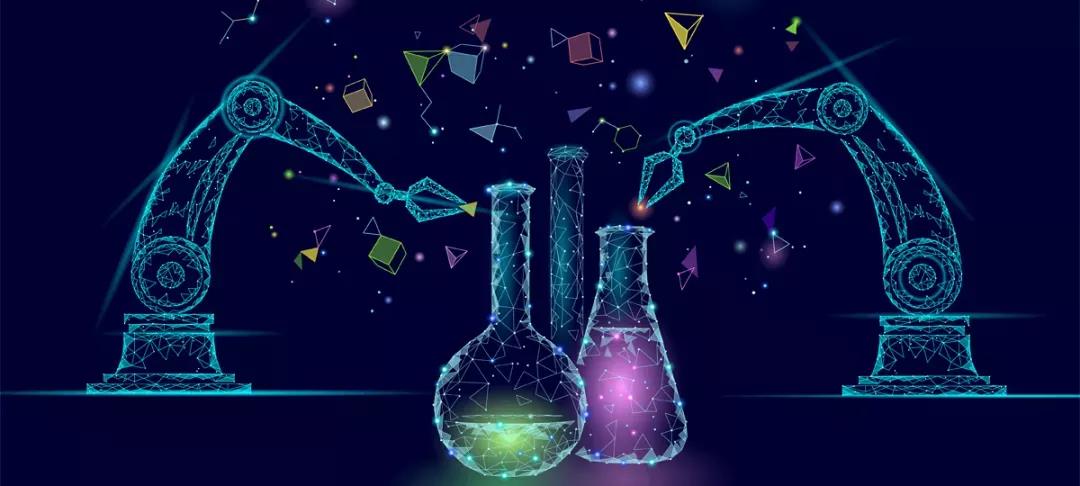
And just last month, researchers from North Carolina State University and the University at Buffalo also developed an "artificial chemist" technique that combines artificial intelligence(AI) and automated systems to perform chemical reactions, capable of accelerating the development and production of new chemical materials needed for commerce.
It's worth mentioning that this artificial chemist not only has an "ontology" that performs experiments and senses the results of the experiments, but also a "brain" that records the data and uses it to decide what the next experiment is.
For proof-of-concept testing, the artificial chemist's body integrates an automated nanocrystal factory and a nanofluid synthesis platform developed in the lab. The artificial chemist's brain is an AI program that forms unique data by identifying and exploring the materials the ontology is synthesizing, and uses that data to make autonomous decisions about experimental conditions for the next set.
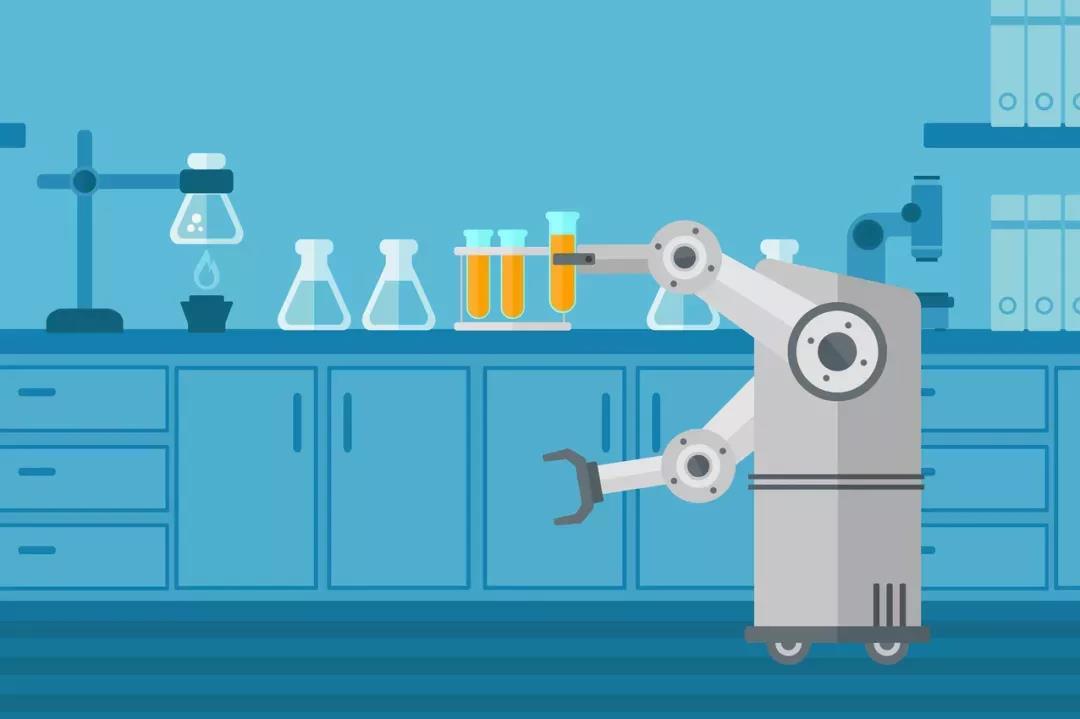
It has to be said that in the past, most artificial intelligence lived in hard disks and memory,and artificial chemists broke through the "dimensional wall" and can directly verify their"ideas" in the real world through physical means.
As Abolhasani, an assistant professor of chemical and biomolecular engineering at North Carolina State University, puts it, "The artificial chemist is like a true autonomous navigation system navigating the complex chemical universe."
"I believe that autonomous material development achieved by artificial chemists can reshape
the future of materials development and manufacturing." Abolhasani said.
The article is sourced from the WeChat public account "Academic Headlines."